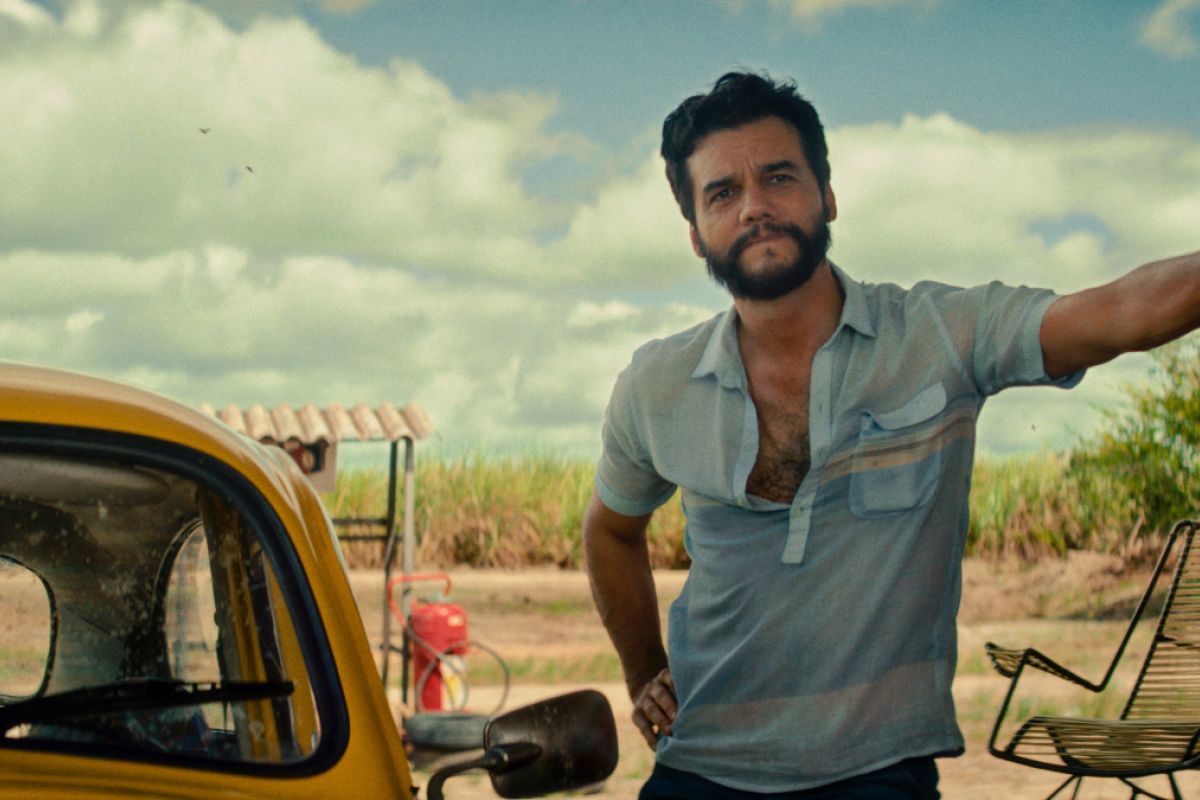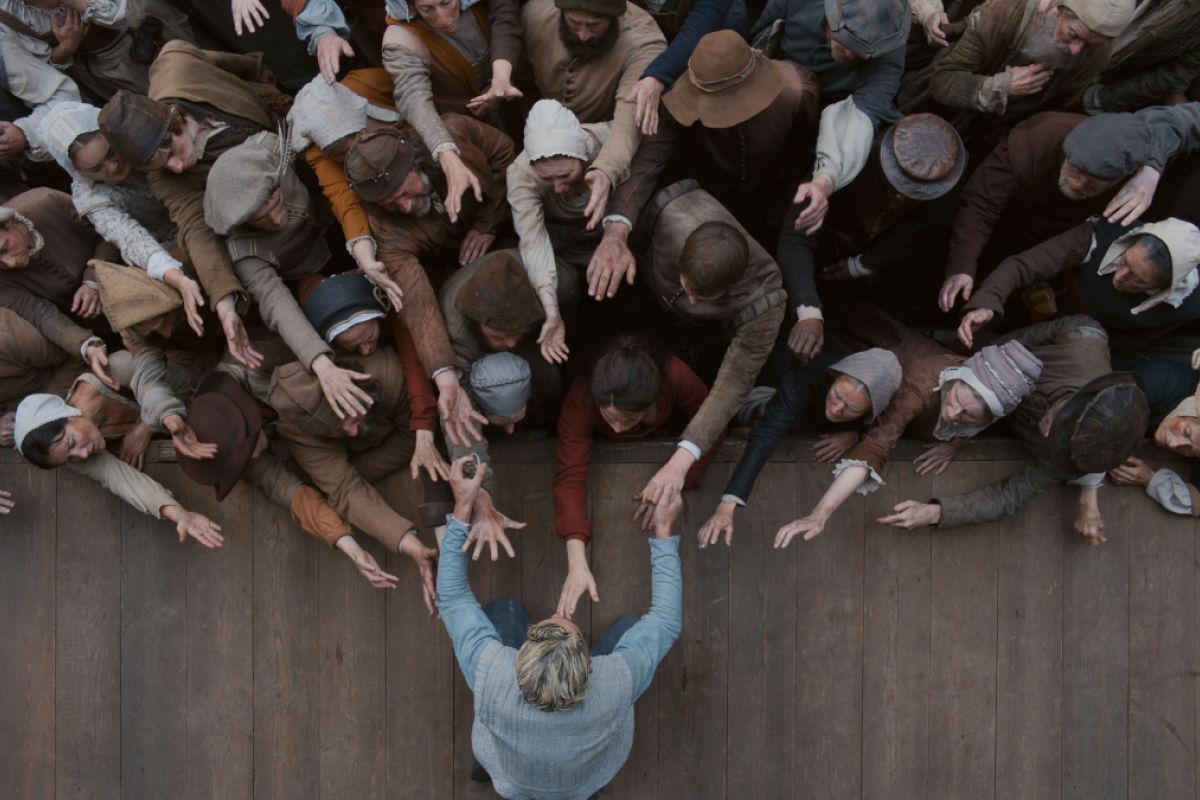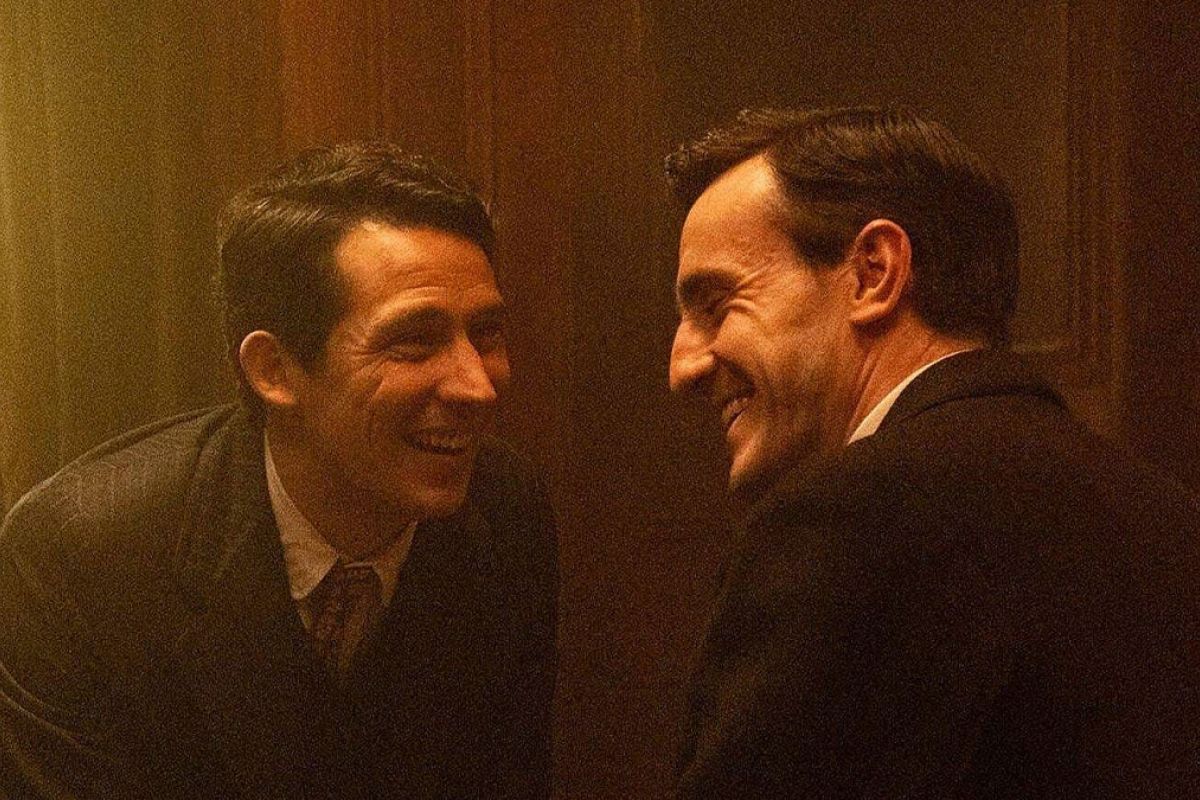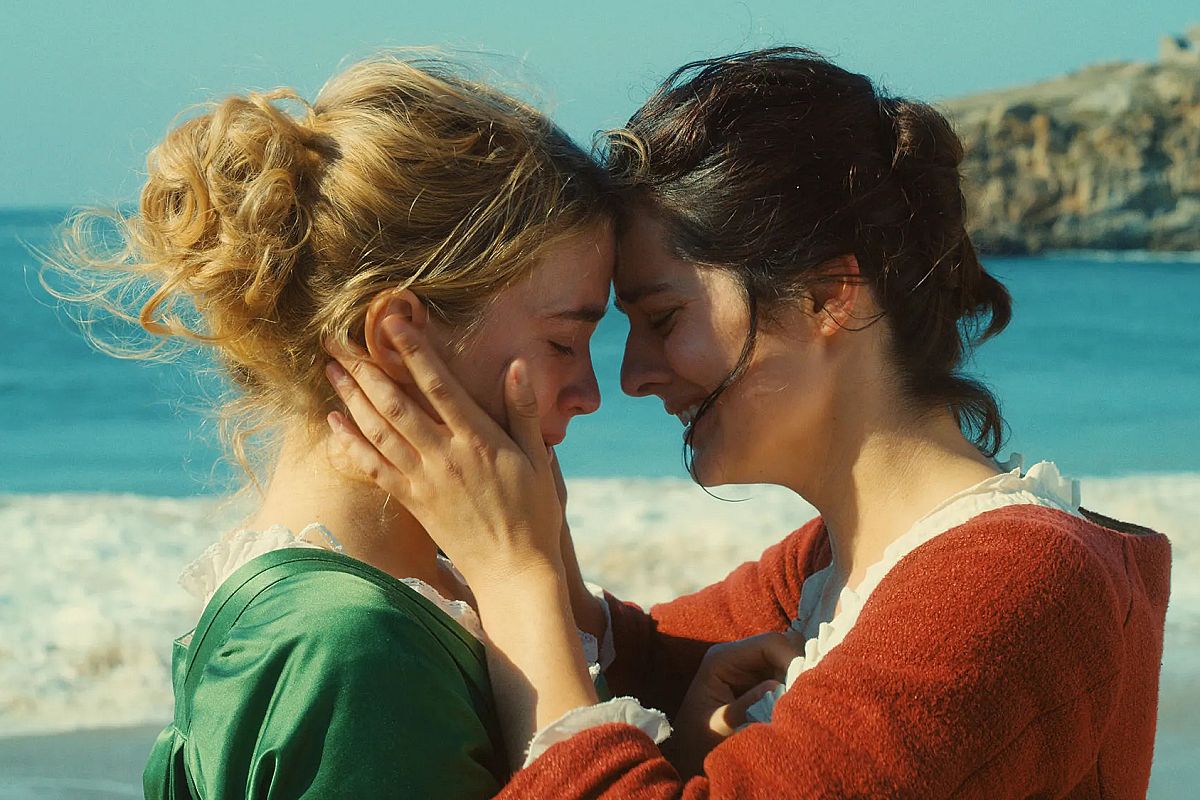
Happy LGBT+ History Month!
The HPPH team pick their favourite LGBT+ films to celebrate.
Portrait Of A Lady On Fire (2019)
My favourite LGBTQ film has to be Portrait Of A Lady On Fire, it’s so beautifully slow-burning and completely captivates me every time I see it. An amazing portrayal of queer/sapphic love.
Ash - Volunteer
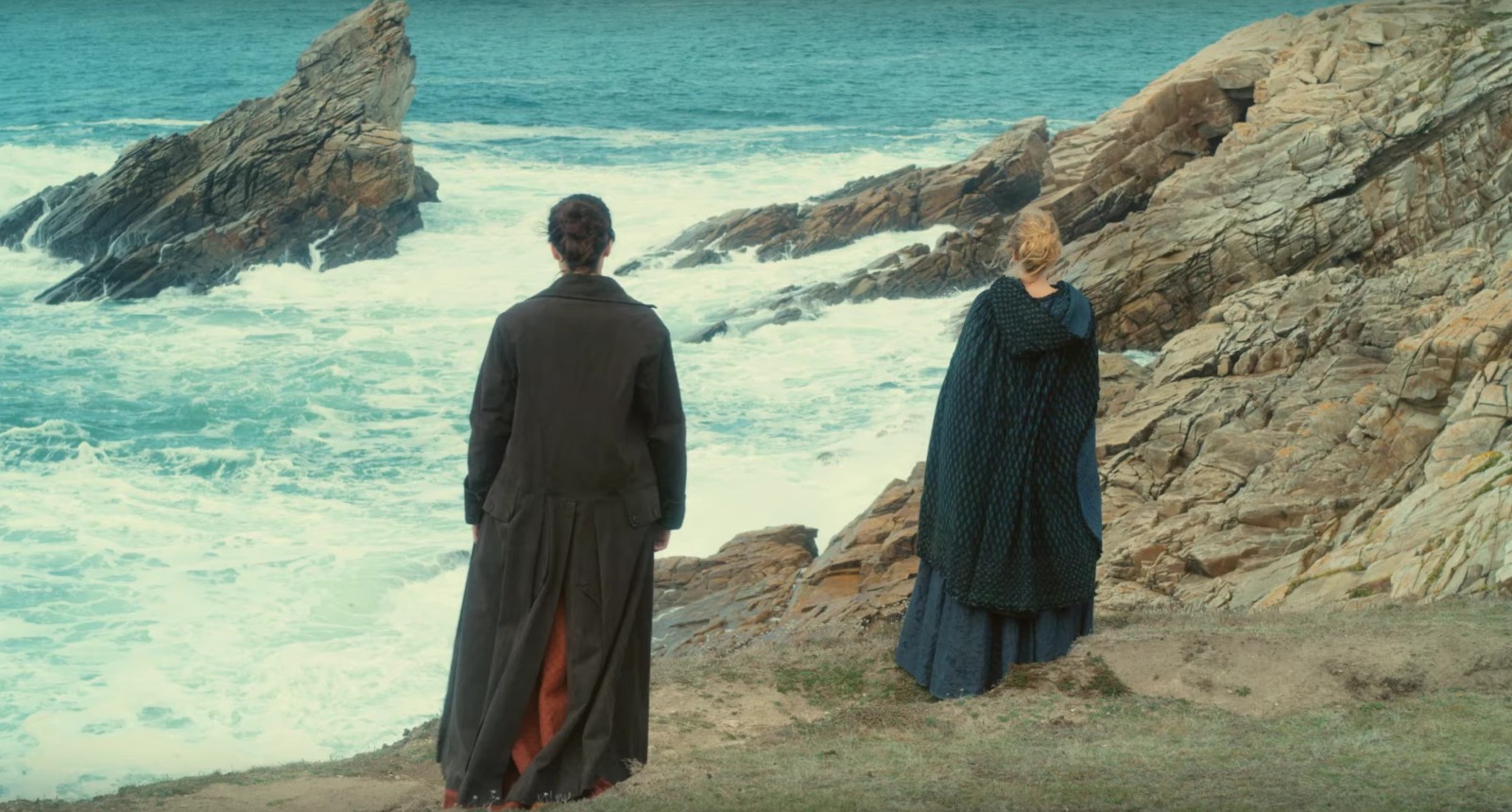
Kajillionaire (2020)
Telling a simple story well is an art form in itself and with Kajillionaire, Miranda July has set the bar exceptionally high. With childlike curiosity, she builds a wondrous and fragile world around introverted con artist Old Dolio, played by Evan Rachel Wood, who has developed an anxious attachment to her shrewd parents. Maybe it takes a stranger to cut the proverbial umbilical cord…
‘But Fran, what’s so LGBTQ+ about it?’, I hear you ask. Just watch it and see.
Fran - Venue Coordinator
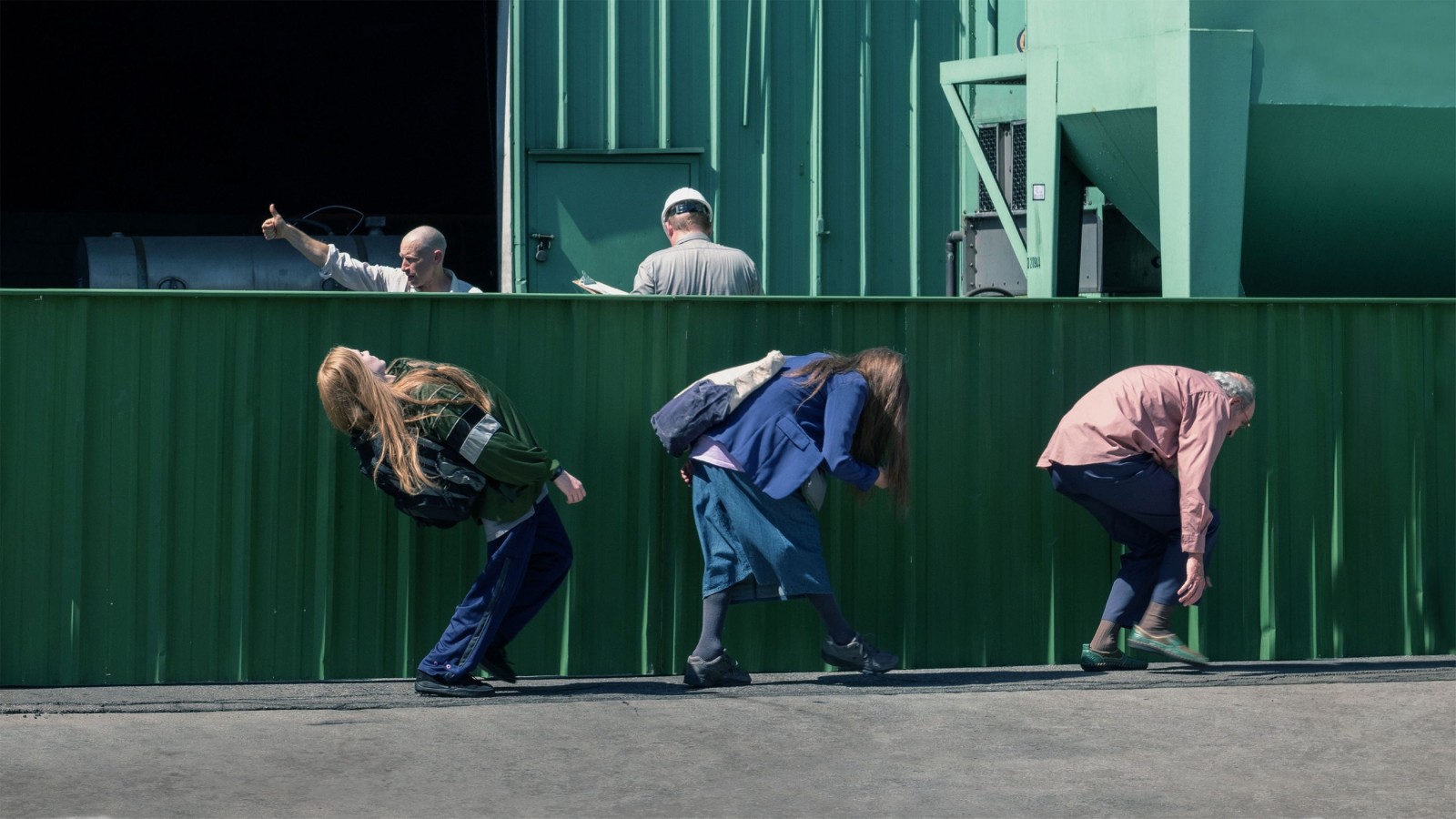
Some Like It Hot (1959)
Some Like It Hot is my favourite LGBTQ+ film. And I don't come to that conclusion lightly. It took me 50 years to decide it was one of my all time favourite films. Then a bit of research to confirm its LGBTQ+ credentials, because I am not a critic, just a fan. And my LGBTQ+ credentials are as an ally, not a scholar.
I suspect I first saw Some Like It Hot on my parents' black and white TV in the 1960s and didn't think much of it. It probably looked like most American films I caught glimpses of then. Boy meets girl, gangsters shoot people, the people and the music were probably a bit too loud and talkative to suit a quiet, introspective English child.
Some films date horribly. But the actual film doesn't change. Societal views change, as do mine. And my knowledge. 30 years on, I rewatched Some Like It Hot. I thought Tony Curtis's "Joe" was rather unpleasant and misogynistic. I hadn't made up my mind about the cross dressing (whether it was misogynistic), but it was at least crucial to the plot. At that stage I thought Jack Lemmon acted Tony Curtis off the screen, and Lemmon's character, Jerry, was hilarious throughout. The more absurd Jerry became, the more I believed in him.
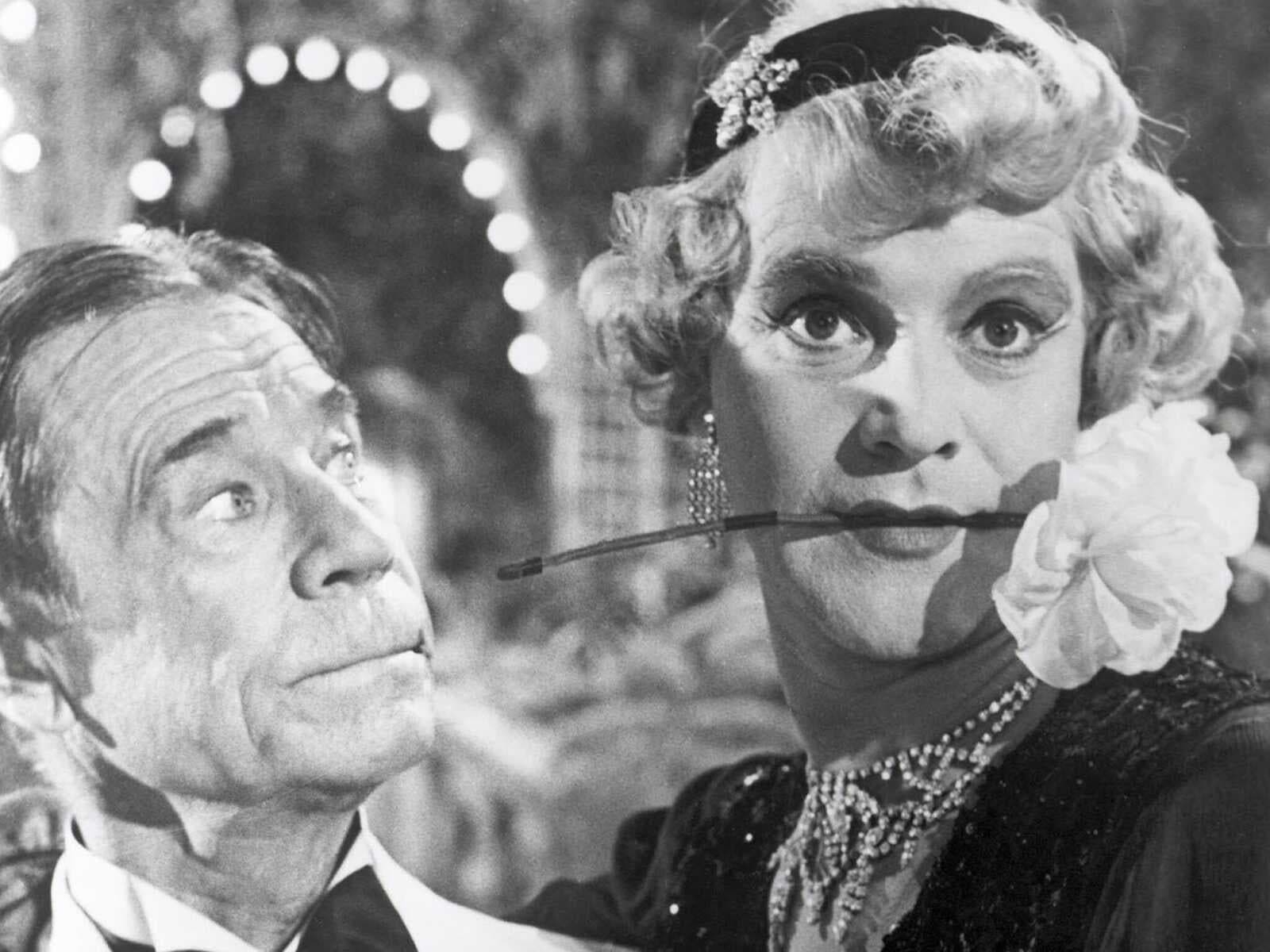
Move on another decade. I learnt about the Hollywood "Hays Code" which described cross-dressing and anything remotely pro-LGBTQ+ as "sex perversion". Interracial relationships and the ridiculing of the clergy were also regarded as unacceptable. There was an outcry from the religious right in America against Some Like It Hot, on its release in 1959. Writer Director Billy Wilder was asked by some colleagues to consider editing out scenes that the Catholic League of Decency described as "seriously offensive to Christian and traditional standards of morality and decency". Some people walked out of test screenings. Fortunately Wilder stuck to his guns and released the film as it had been planned, risking criticism, financial loss and perhaps damage to his reputation. The Hays Code remained in place until 1968, by which time, I suspect, many film fans had forgotten it existed.
I love Some Like It Hot because it's funny, silly, kind hearted and ridiculous. And it has a happy ending. It might seem unremarkable now, but (spoiler alert), Jerry's ecstatic delight in nights of dancing, flirting and discussing marriage plans with Osgood, the man who proposed to him, was a breakthrough for mainstream American cinema. It opened the door, by a tiny crack, to allow people to believe that they could be who they wanted to be, and love whom they wished, and not who the state or church deemed acceptable. I got my corroborating articles from Out Magazine and Movieweb.com. And further advice from my offspring, Robyn, who is part of the LGBTQ+ community, and who features in the photographic evidence of my love for Some Like It Hot.
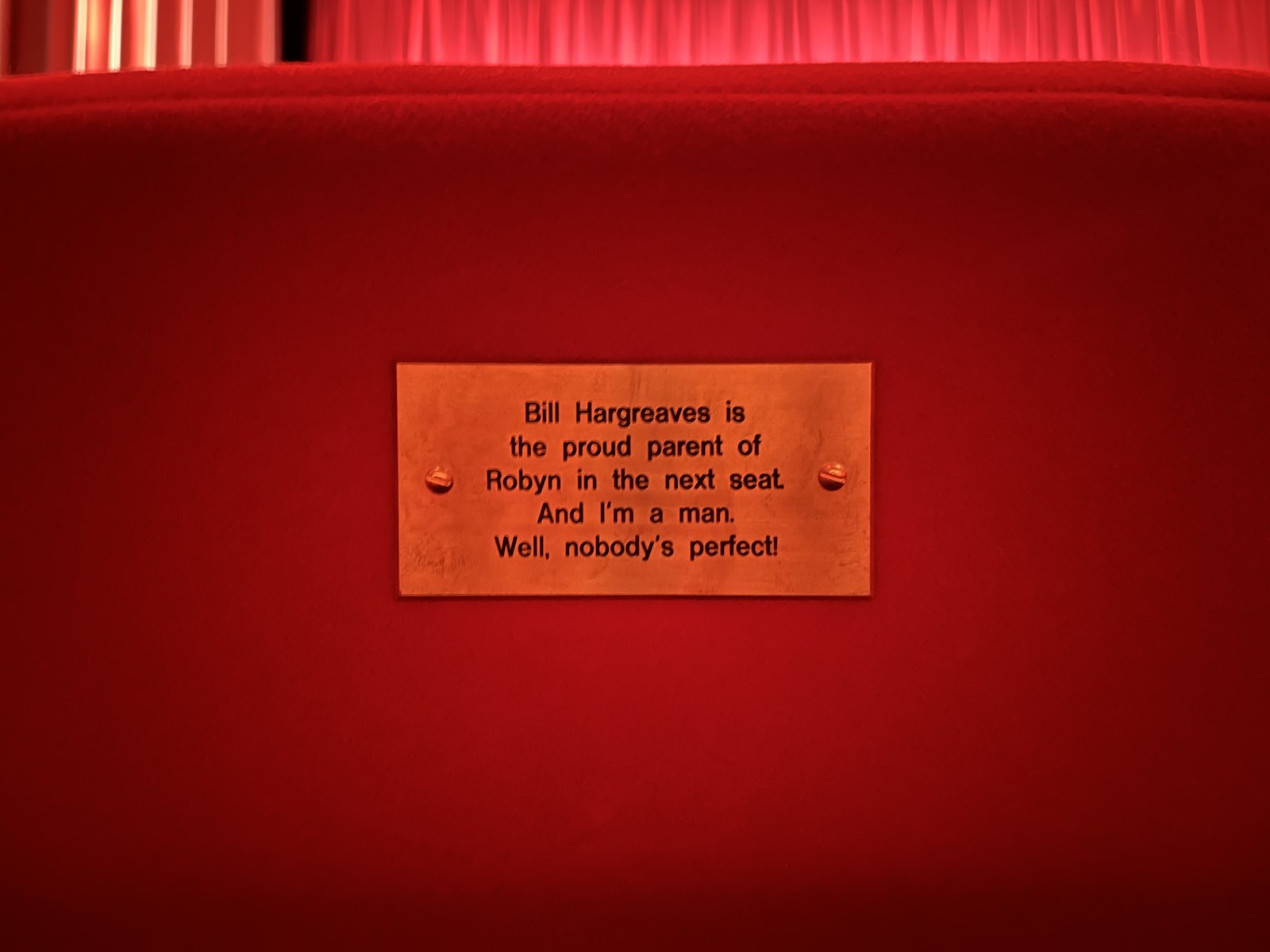
So I love this film. And now, when I watch it, I mostly ignore Tony Curtis and enjoy the wonderful build up to my all time favourite closing film dialogue, which suggested that any two people have a right to love each other.
Bill - Volunteer
Pink Flamingos (1972)
I like my films unapologetic. Whilst many LGBTQ+ films ask for sympathy, understanding and assume an almost implicit and inevitable tragedy, maverick master of sleaze John Waters’ most notorious film throws that all back into the gutter. His long-term muse Divine is on gloriously filthy form here, where the grotesque, the crude and the explicitly transgressive create a chaotic, low-budget masterpiece of abject film art.
Robb - Operations & Programme Manager
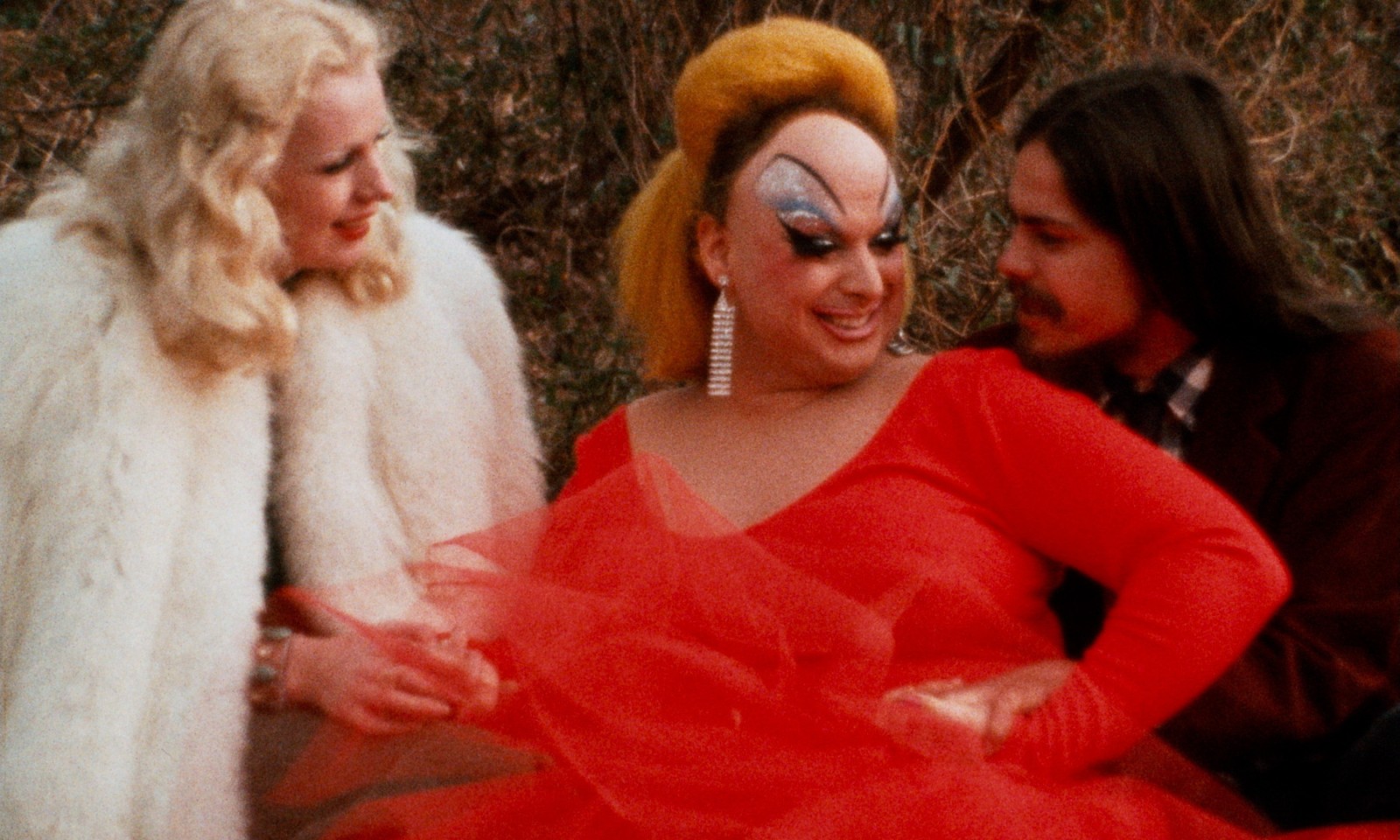
My Own Private Idaho (1991)
My Own Private Idaho is Gus Van Sant’s radical reinterpretation of Shakespeare’s Henry IV and V. He transports the action to the world of gay street hustlers in the early ‘90s of Portland, Oregon. It’s something that shouldn’t work but it does so brilliantly.
Keanu Reeves plays the gay for pay Scott Favor, the son of the Portland mayor who is the heir of his fortune. River Phoenix plays Mike Waters, a narcoleptic street hustler in love with Scott and wants to find his mother.
Van Sant quite brilliantly shoots both the straight and gay sex scenes with the actors completely still in various positions so as not differentiate between the two. It was a truly radical creative choice for 1991. The much talked about camp fire scene is a landmark in LGBTQ+ cinema and River Phoenix’s performance will break your heart, "I could love someone even if I wasn't paid for it. I love you and you don't pay me… I really want to kiss you, man." Phoenix ended up writing the camp fire scene himself.
The film was a moderate success and became the only real commercial breakthrough of the New Queer Cinema movement of the ‘90s. It’s also a testament to both Phoenix and Reeves for willing to take on the roles at a time when everybody told them it would be the end of their careers. The film is partly a road film and Keanu took a road trip himself to hand deliver the script to River whose then agent never even showed him it.
Ian - Volunteer
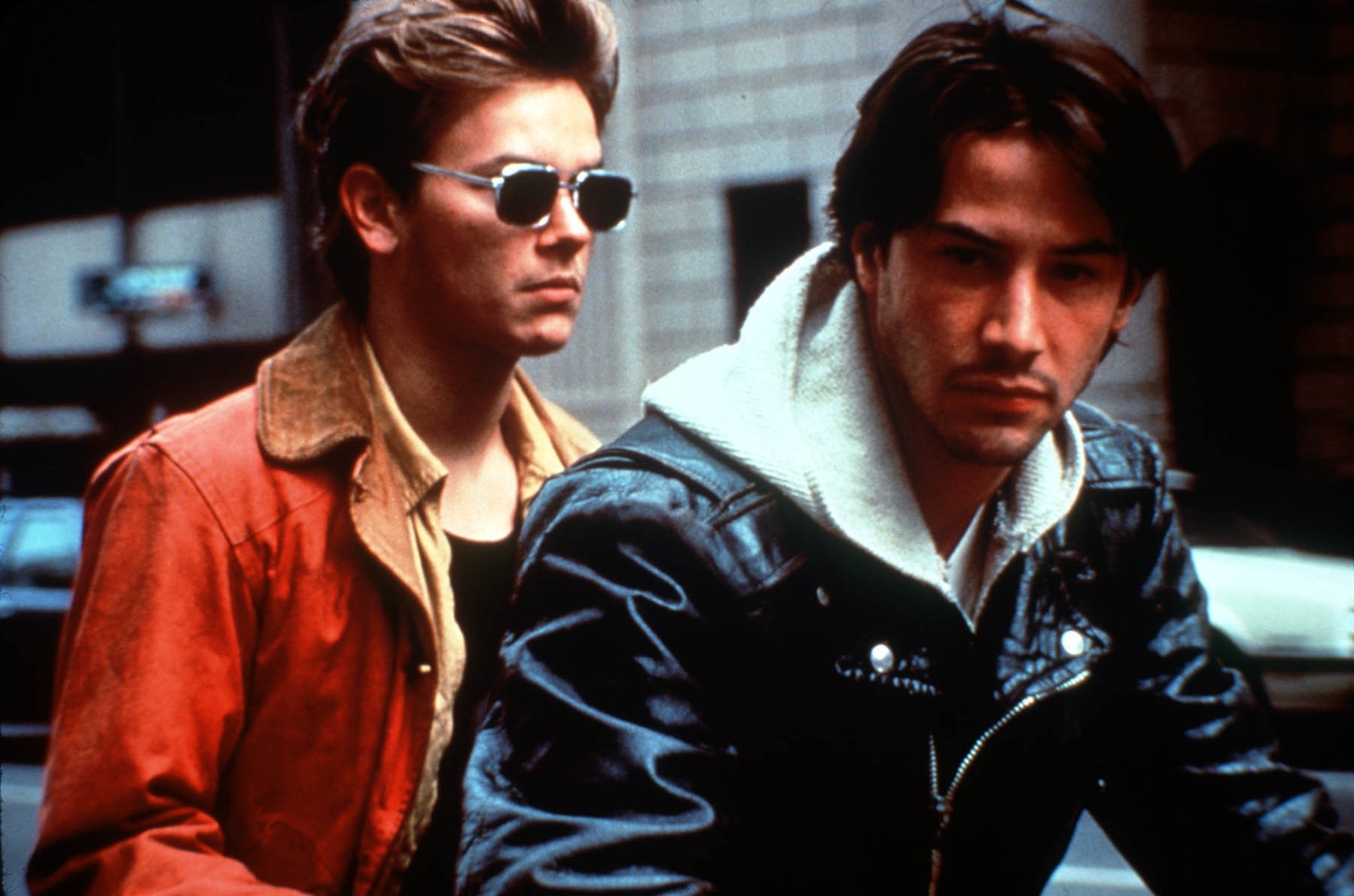
Can You Ever Forgive Me? (2018)
My LGBTQ History Month pick is Can You Ever Forgive Me? (2018) dir. Marielle Heller -- a film about the life and crimes of acerbic lesbian writer Lee Israel, better known for her work as a convicted literary forger. Less of a crime romp than a dark comedy that's melancholy and cosy in equal measure as we watch a friendship unfurl between Melissa McCarthy's prickly Lee and Richard E. Grant's sardonic gay hustler Jack Hock (both fantastic performances). A fun yellow-tinged delve into 90s New York dive bars and the thrill of forgery, and a beautiful tribute to gay/lesbian friendships.
Vee - Venue Coordinator
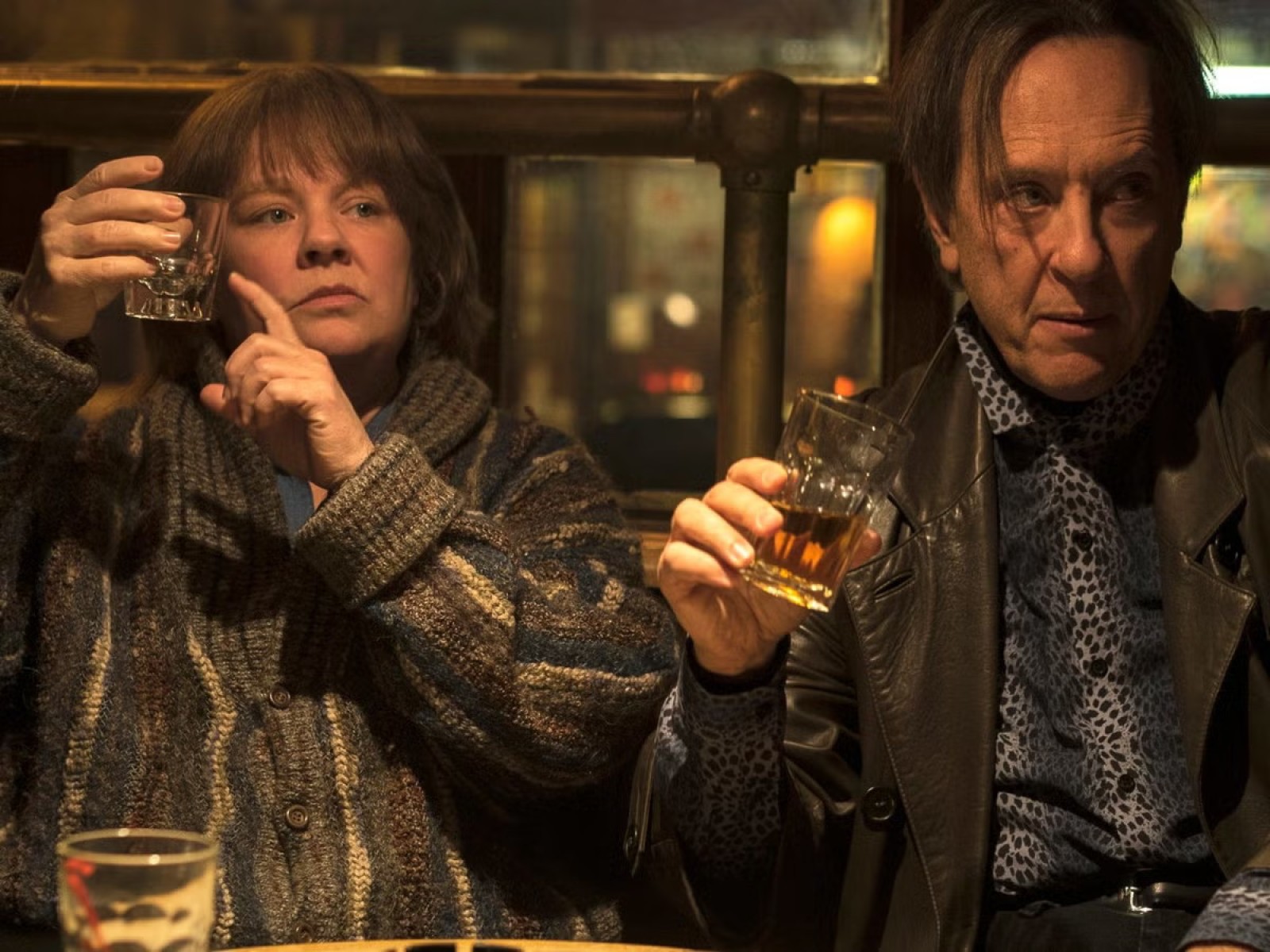
All of Us Strangers (2023)
Andrew Haigh’s LGBTQ drama All of Us Strangers is astounding on so many levels. The concept, based on Taichi Yamada’s novel, is fascinating and gripping throughout, even if cruelly devastating. The soundtrack and cinematography are brilliant and the performances, especially by Andrew Scott (Adam) and Paul Mescal (Harry), are mesmerising. One of the many things I love about the film is the way it explores how experiences of LGBTQ people have vastly changed even in the space of Adam’s lifetime. This is creatively shown when Adam meets the ghost of his mother who, when she hears that her son is gay, suddenly worries about homophobia and AIDS and so many other things. This encounter with his mother, frozen in time since her death 30 years prior, is a reminder of how much can change between generations. There are also reminders of how much still needs to change to create a more inclusive, less hateful world. For example, even in a safe queer environment, Adam and Harry feel the weight and violence of the words ‘queer’ and ‘gay’ due to them being used as insults in their respective younger days. It’s a painful but incredibly beautiful film that I can’t recommend enough and you don’t have to just take my word for it, you can also read Ollie’s wonderful piece about the film here. And you can still catch it at the cinema.
Martha - Digital Marketing Coordinator
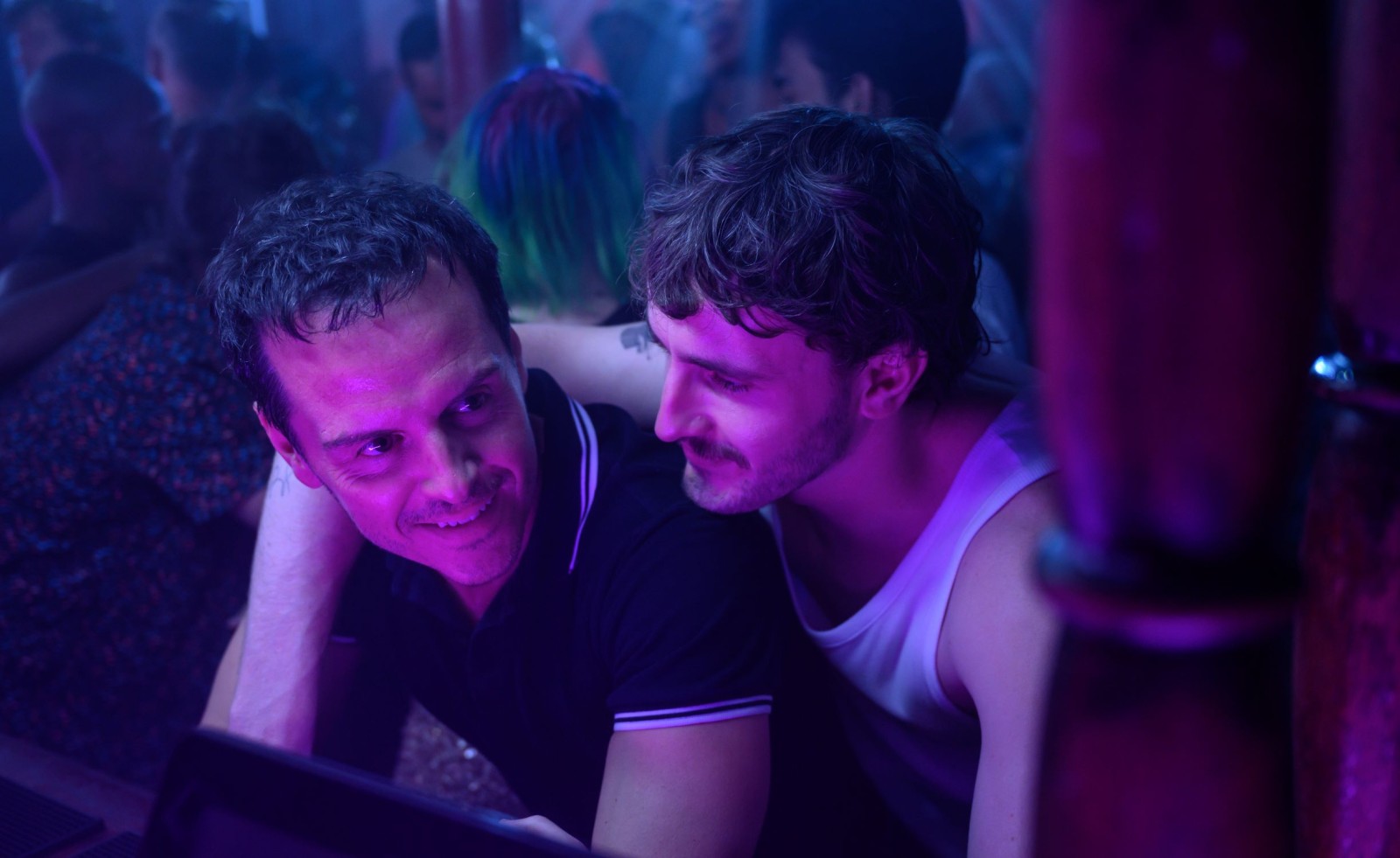
Kokomo City (2023)
One of my favourite contemporary LGBTQ+ films is the documentary Kokomo City. I see this as a spiritual sequel to Paris is Burning, following the real lives of black trans sex workers across the USA featuring candid, powerful interviews, and at times darkly funny commentary.
Alice - Venue Coordinator

God's Own Country (2017)
It is such a wonderful film with beautiful performances, and is set it in the best place in the world - Yorkshire!
Grace - Volunteer
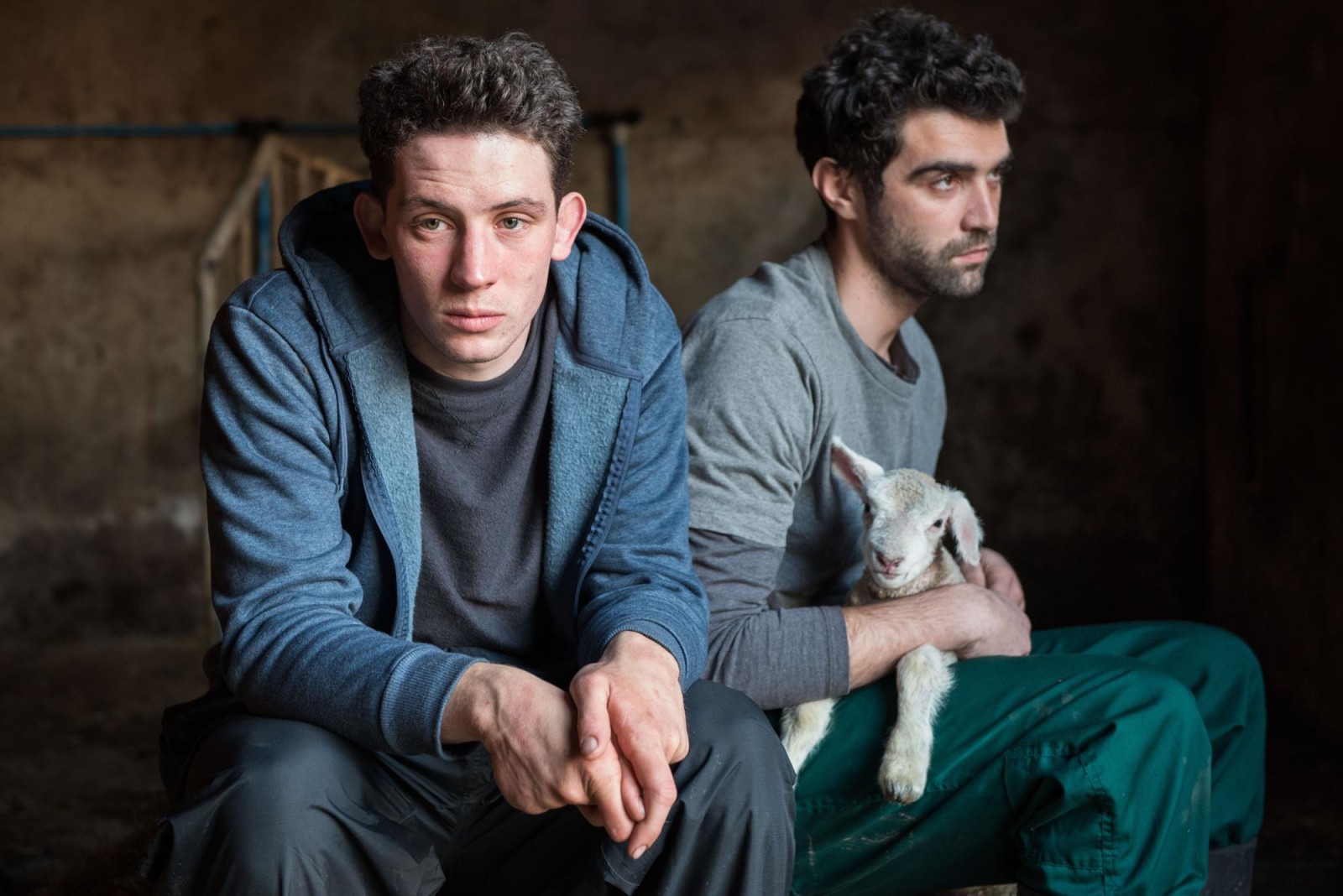
120 BPM (2017)
For me one of the most affecting and important queer films of recent years is Robin Campillo’s 120BPM.
Taking audiences on a thrilling and devastating journey through the AIDS crisis in Paris during the early 90s, 120BPM shows us just how hard-won LGBTQ rights and effective HIV treatment have been in recent decades, and how much further there is to go, especially when it comes to the continued societal stigma of those living with HIV, including within the LGBTQ community. The emphasis the film places on solidarity, and the important relationship between the LGBTQ rights movement and dance music, reminds us why spaces like Wharf Chambers and nights like Love Muscle in Leeds aren’t just spaces and nights, but inherently political entities, who are part of a long legacy of groups continuing to advocate for, and fight on behalf of, everyone within the LGBTQ community.
Ollie - Marketing & Communications Manager
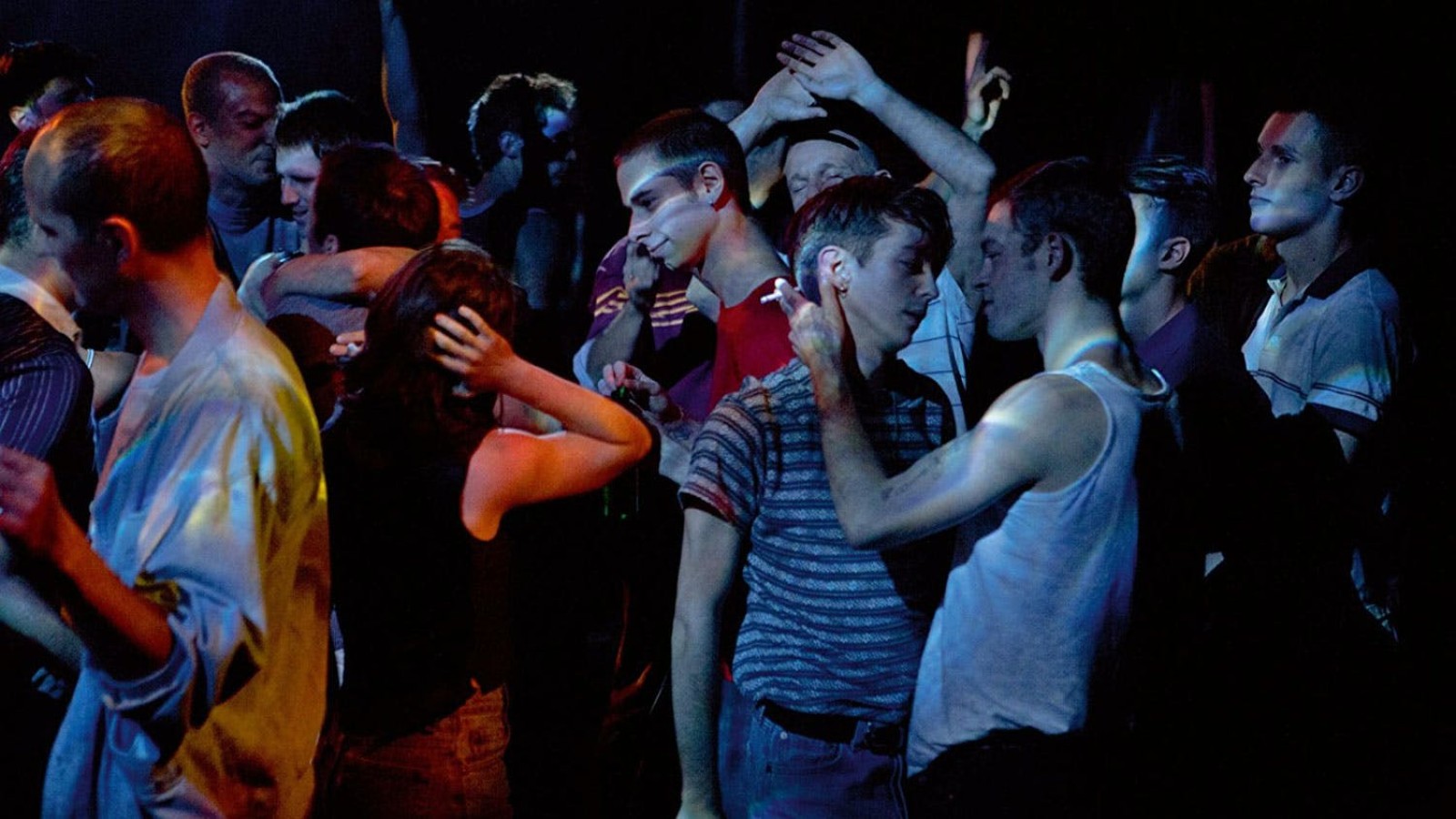
Happy Together (1997)
Wong Kar-wai’s Happy Together was a formative film for me. Discovered late night on Channel 4, me an awkward teen, Happy Together was one of a group of films I came across at the exact right time to help me appreciate film as more than entertainment but as an art form in its own right. Full of romance, longing, and heartache, Kar-wai’s 1997 film too often sits in the shadow of In the Mood For Love when actually they are companion pieces, great love stories for the modern age.
Wendy - Head of Cinema
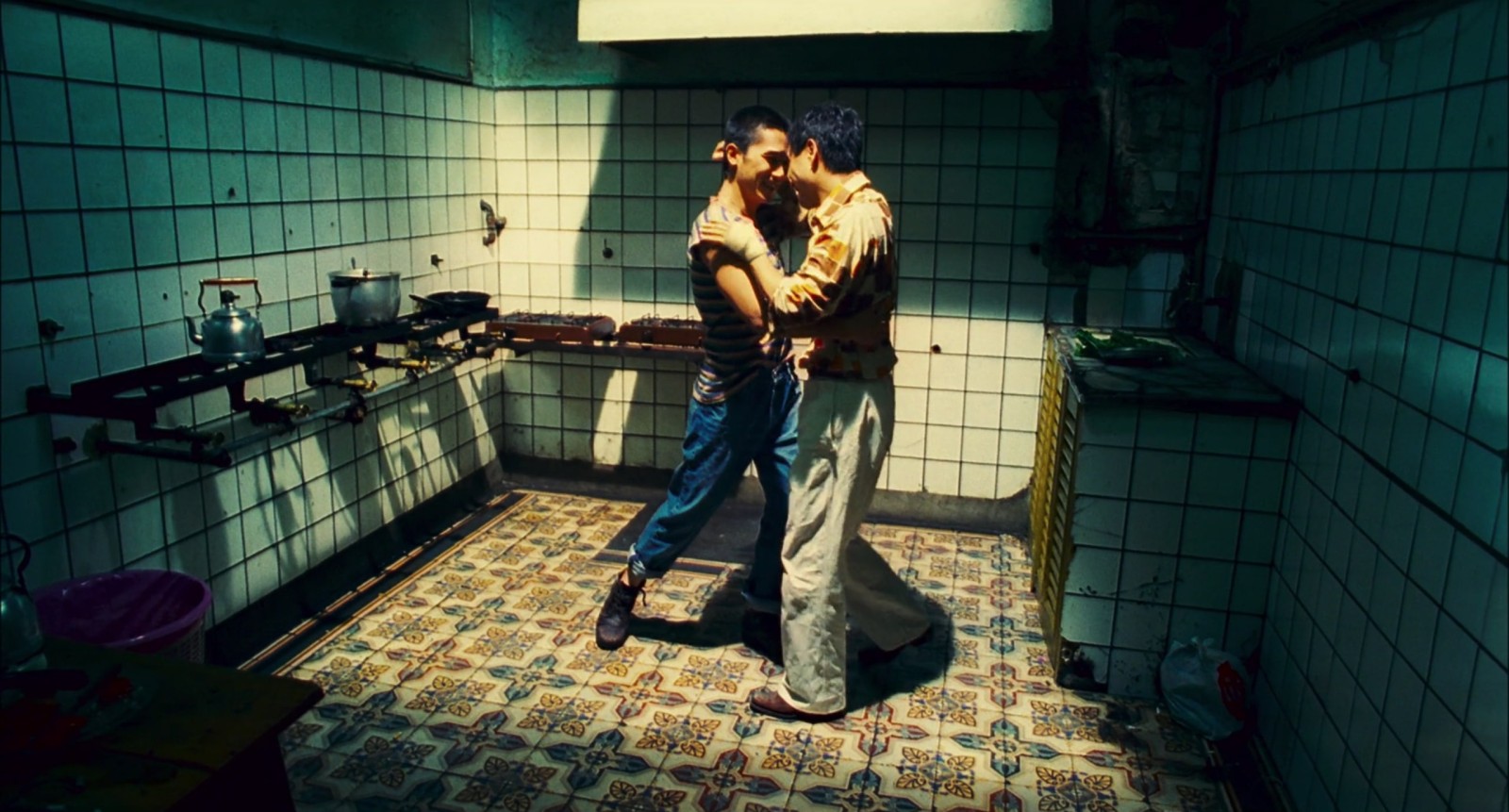
Kissing Jessica Stein (2001)
The first film I saw with queer representation was Kissing Jessica Stein, the 2001 smart romantic comedy with bisexual representation. It has perhaps not aged well but it still holds a place in my heart!
Ingrid - Volunteer

Sweetheart (2021)
This is a brilliant coming-of-age film where angsty teenager AJ is dragged to a caravan park for a family holiday. It’s about creating your own identity, acceptance from family and of yourself, and first love, as AJ meets her dream girl at the caravan park, charismatic lifeguard Isla.
AJ has already come out to her family and everyone is very accepting. However, there are still aspects that her family don’t get and are insensitive about, such as wanting her to have a more feminine style. I like AJ’s style and it's cool that she embraces both her feminine and masculine sides. Being stuck in a confined space of the caravan park helps the family gain a better understanding of each other, so it's interesting to see the dynamics and the characters' development.
The location is well used as it’s shot beautifully and is quite dreamlike in parts. There’s also a very cool indie/shoegazey soundtrack featuring bands like Porridge Radio and Toydrum.
There’s a strong connection between AJ and Isla that’s wonderful to watch as they have great chemistry. The teenage awkwardness especially when it comes to embarking on a first time romance is very real and relatable. The script is very witty making the characters feel quite well rounded.
It’s an impressive debut from writer and director Marley Morrison, who gets awesome performances from everyone in the film. A lot has been drawn from Marley’s own experiences, which provides authenticity.
Han - Venue Coordinator
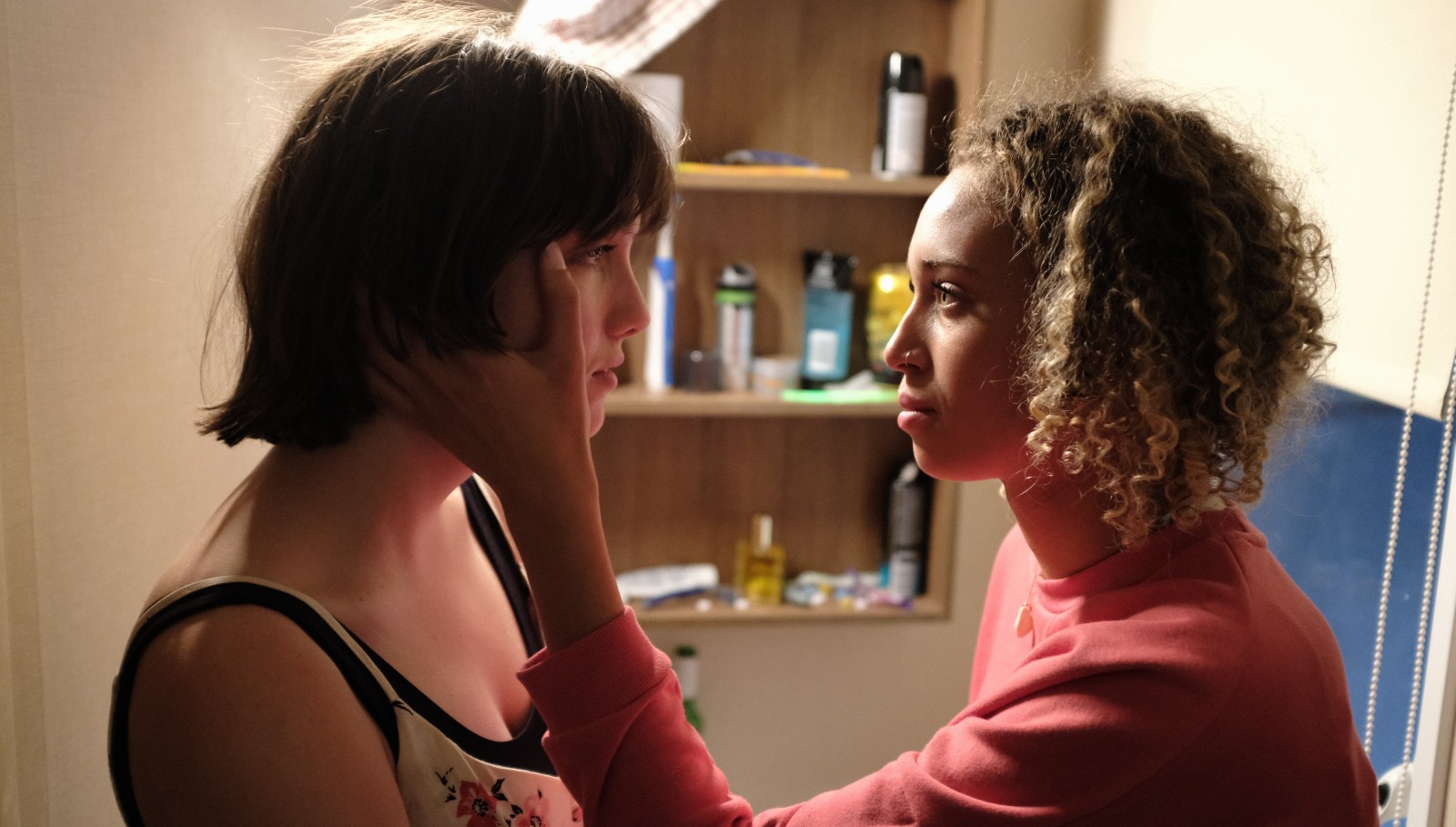
Pride (2014)
Between the unbelievably talented cast, fabulous soundtrack and beautiful story, Pride is one of my all time favourite films. I think it’s worth watching just for the dancing scene to “Shame, Shame, Shame”, but the remarkable story of how a group of Lesbians and Gays (LGSM) came out in support of a small mining town in Wales in the midst of the strikes in the 80s is so heartwarming. It’s also full of iconic lines which my friends and I often find ourselves quoting!
Eva - Venue Coordinator
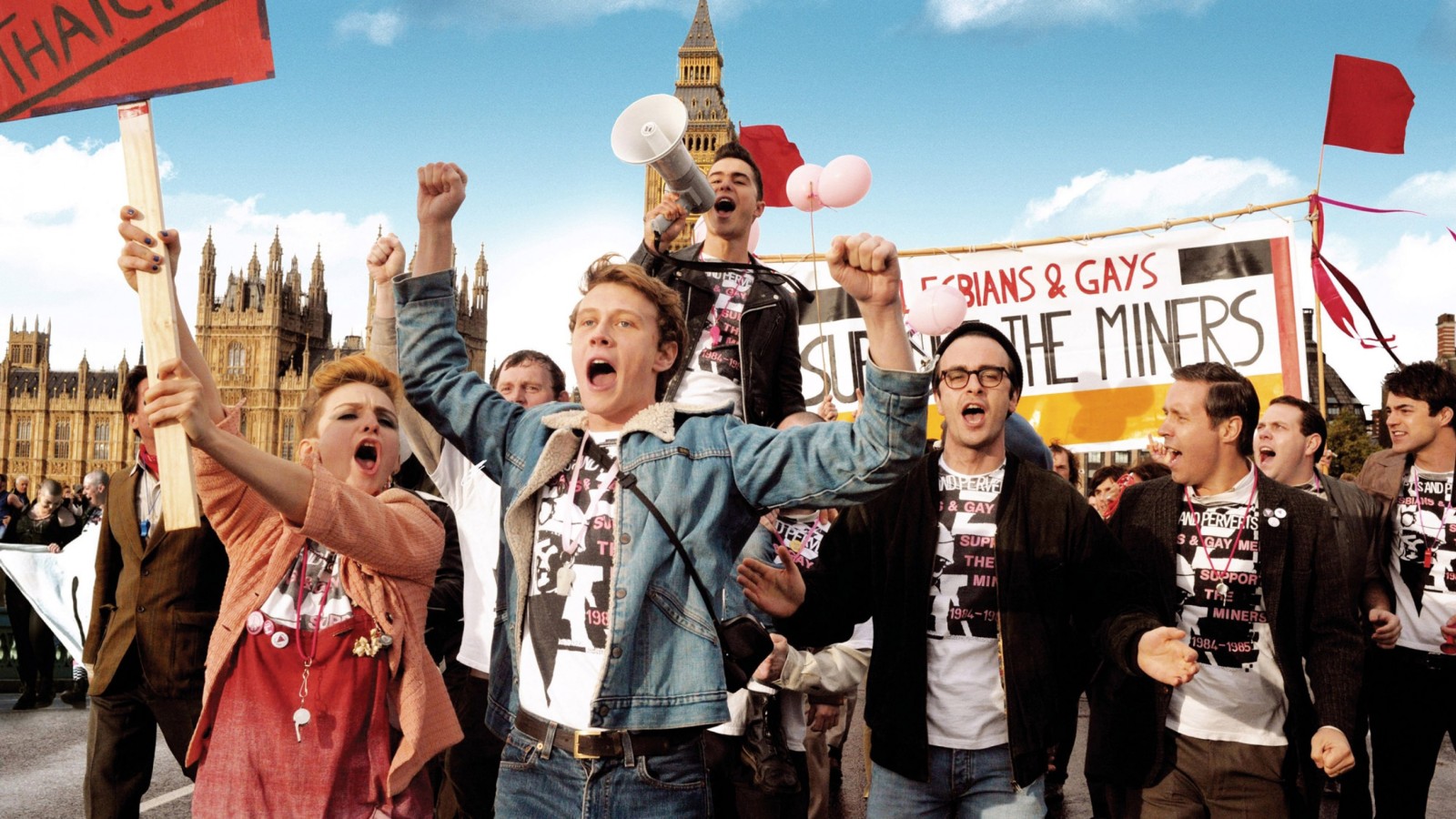
Paris is Burning (1990)
Paris is Burning is a groundbreaking documentary that delves into the vibrant underground ballroom scene of New York City in the 1980s. It explores the lives of LGBTQ+ communities, focusing on their experiences, struggles, and aspirations as they participate in competitions known as ‘balls’. The film documents the quest for success, acceptance and expression within the ballroom scene. Many phrases within the queer community today come from this film and ballroom culture itself. Paris is Burning celebrates an unapologetic resilience, queerness, creativity, and the power of self-expression. It’s iconic.
Henry - Volunteer

We hope you enjoyed reading about our favourite LGBT+ films! We're also excited to be working with Leeds Queer Film Festival who will be launching their programme with us with a screening of Pride on Sunday 18th February.
